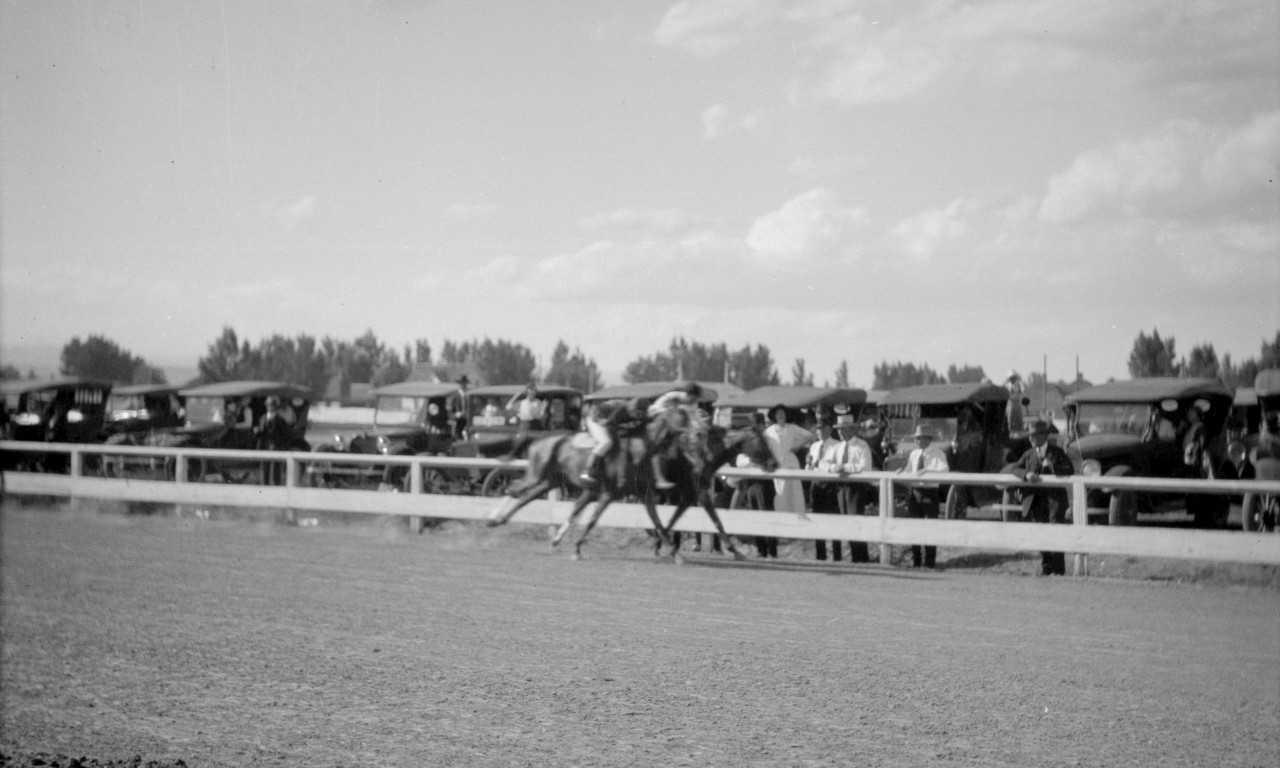Come the first week of August, Boulder County residents will flock to the former Affolter Corner Farm in Longmont, the site of the Boulder County Fair. Perhaps they are hoping to catch a glimpse of rodeo queen Mandy Larson, perhaps they arrive with rabbits, chickens, or goats to show, or perhaps they are fans of the demolition derby, carnival rides, and funnel cakes. More than 100,000 people are expected to visit this year’s fair and there is something for everyone.
The Boulder area has celebrated its agricultural and mining roots through various fairs, events, and festivities since before Colorado gained statehood in 1876. Filling a lull between planting and harvesting, the Boulder County Fair began as a way to showcase the county’s agricultural products.
The June 12, 1869 edition of the Boulder County News is the first to mention a county fair, which was to include a granger’s convention. That year the Boulder County Agricultural Society was founded, elected a president, and purchased 40 acres for a fairground between 28th and Valmont streets in Boulder. Their first fair was held in October, and included horse races and five classes of exhibits, including minerology. The fair lost $2,500 its first year and the fairgrounds were later sold to pay the debt.
John Brierly, an Englishman who came to Boulder to mine and stayed to farm, was known for his fruits, vineyards, vegetables, and the hothouse carnations that won him many prizes at this first Boulder County Fair. He was just one of many farmers in the early days of Boulder County. By 1900 the county was home to 967 farms. Some came to mine and found more profit in supplying miners with fresh food. Others came with the intention of farming.
Main Attractions
In 1871 a group called the Chicago-Colorado Colony arrived, platting the town of Longmont. The settlers who came with the Chicago-Colorado Colony came with agricultural dreams, rather than hopes of finding gold in the hills. They formed the Northern Colorado Agricultural Society and purchased 80 acres (today’s Roosevelt Park in Longmont) to serve as fairgrounds. Roosevelt Park was originally named Lake Park after Lake Michigan, because it held a shallow lake in the center, which only saw water in wet years. Eventually the lake was filled in, but the half-mile race track that encircled the park is echoed in today’s circular walking path. This track hosted numerous horse races and bicycle races, both very popular in the 1890s.
Over time, the County Fair in Boulder drifted away from its focus on agriculture and the fair held in Longmont continued to draw great crowds. In October of 1899, the Boulder County Fair was officially moved to Roosevelt Park, where it stayed until 1978. Photographs from the 1920s and 1930s show a bustling scene with a grandstand, Ferris wheel, children feeding a tame bear, elaborate canning and grain exhibits, and livestock barns.
Agricultural machinery has remained a staple at the fair for more than a century. In 1877 farm machinery displays proved the most popular event at the fair, with people streaming in to see the new threshers powered by steam. In fact, the steam powered machinery at the tractor show is still a large draw today.
The fair has continued to grow uninterrupted except for 1946 when a polio epidemic led to its cancellation. Much of the state was hit hard by the epidemic. Both the Boulder County Fair and the Loveland Fair were canceled in hopes of keeping children involved in 4H activities from being exposed to the virus. Two Louisville schools postponed their opening days that fall, scout meetings were cancelled, and movie theaters would not admit children under 16, in hopes of reducing their exposure to the virus.
Early Beginnings of the Local Foods Movement
With the fair growing in popularity, more space and new facilities were needed. In 1976 the county purchased the land at the corners of Nelson and Hover roads. The 130 acre property afforded plenty of room for the fair to spread out, and the first of many buildings was raised. The county continues to support agriculture in Boulder County through improvements for the county farmer’s market located on site.
The burgeoning local food movement and Boulder County’s reputation as a hotbed for natural foods has seen a renaissance in the number and diversity of its farming operations. Today, as much as in 1869, the Boulder County Fair remains a way to celebrate Boulder County’s agricultural products and heritage.


